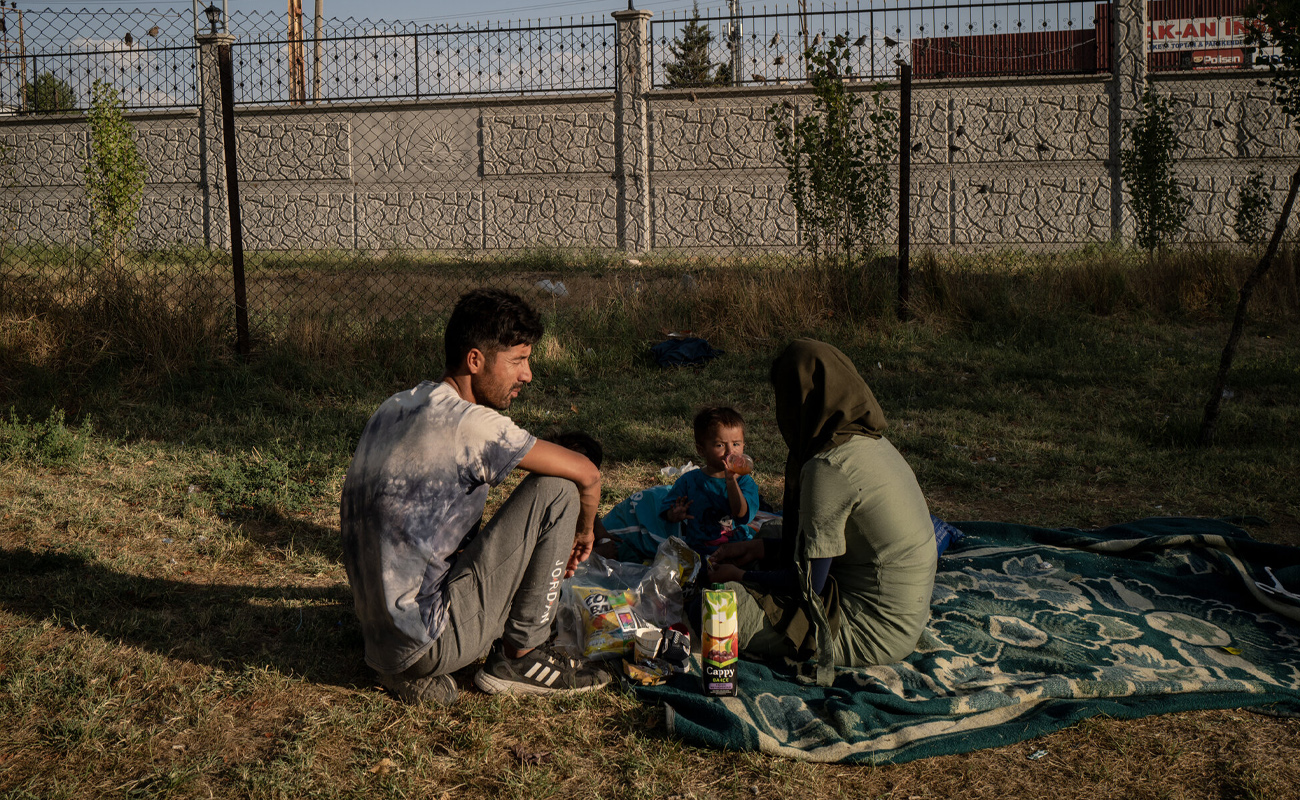Afghanistan's Refugees: A Tool for Securitization and the Geopolitical Game of Neighbors
By Abdul Naser Noorzad
Securitization in the actions of neighboring states with crisis-prone centers, or those with ambitious security agendas seeking to implement special measures, is a common phenomenon. These governments, considering their security priorities—defined within the framework of political realism, whether defensive or offensive—require justification and the creation of necessary grounds for such actions.
The recent move by Afghanistan’s neighbors, such as Iran, Pakistan, and Tajikistan, to rapidly and unhesitatingly deport Afghan refugees—who have fled to these countries out of fear of torture, assassination, and the Taliban’s discriminatory policies—can be analyzed as a securitizing measure. According to the Copenhagen School theory, states transform an issue into an existential threat, moving it from the ordinary realm of politics into the security domain. By doing so, they seek to justify their security actions in line with their vital interests and present these actions as legitimate to their societies, neighbors, and the international community.
Essentially, the theory of securitization requires three main components:
- A securitizing statement, issued by the government or a security authority, which is the first step in laying the groundwork for securitization.
- The securitizing actor is usually the state.
- The referent object, which refers to the core threat.
- The need for urgent action in response to potential security threats.
Additionally, the audience (the people), public acceptance, and the existence of the threat (in this case, the presence of refugees) are also key elements in this process. States need these components in a chain-like manner to justify their actions, implementing them one after another.
In this context, Afghanistan’s neighboring countries portray the presence of refugees as a threat to their national security and, by resorting to securitizing measures, create the necessary conditions for extraordinary actions to achieve their objectives. Securitization allows states to justify exceptional measures (such as immediate deportation without due legal process), which would be unacceptable under normal circumstances. In such situations, states, with extraordinary powers and a prepared mental framework, can use these actions to secure their vital interests.
In this process, not only states but also other securitizing authorities and political and security elites, using specific discourses, prepare public opinion to accept these actions and create the necessary psychological environment to gain public approval. Since these actions are understood within the framework of political realism and the prioritization of state security, any security measure—even if it violates human rights—is quickly accepted by society. Thus, securitization, as an urgent and justifiable action, paves the way for ignoring countries’ human rights and international obligations toward refugees.
This raises the question: Why do countries like Tajikistan, Iran, and Pakistan, despite being aware of the dangers of mass deportation of refugees and its consequences for instability in Afghanistan and the region, still proceed with such simultaneous actions? All these countries know that mass deportation of refugees can lead to new humanitarian and security crises that will have effects beyond Afghanistan’s borders.
The immediate answer is that these countries, despite being aware of the negative consequences, act out of prioritization of internal security, domestic pressures, short-term interests, weak civil institutions, and political and security calculations. This behavior is a clear example of the dominance of the logic of securitization and political realism over humanitarian and regional considerations. While these security calculations may provide an immediate solution to the current crisis, strategically and for the region’s future, these actions will have destructive effects.
Chronic distrust, the use of proxy tools to advance security agendas, efforts to quell domestic protests and divert public attention, laying the groundwork for future security programs, focusing on the defense industry, and incurring huge costs to maintain authoritarian regimes are among the objectives of these countries in adopting such an approach. Furthermore, all three countries are seriously concerned about the intensification of terrorist activities in Taliban-controlled Afghanistan and, to address these concerns, take preventive security measures and use refugees as a tool of political and security pressure against the Taliban or even extra-regional powers.
In reality, all three of Afghanistan’s neighbors use the Afghan refugee card as a security tool to avoid becoming victims in the ongoing regional geopolitical games. The simultaneous deportation of refugees can question the legitimacy of the Taliban regime and strain their relations with international institutions. As these relations deteriorate, the Taliban become more dependent on their neighbors and are forced to respond to their security concerns.
In summary, Afghanistan’s neighboring states, through coordinated action, seek to achieve security, political, economic, and geopolitical objectives based on their vital interests, which can meet their immediate needs in the current tense environment. Unfortunately, Afghan refugees have now become a security subject and a referent object for securitization by neighboring countries.
Abdul Naser Noorzad was a lecturer at Kabul University. He has an MA in National Security Studies. He has written a couple of books about Afghanistan's security and political situation and has published dozens of articles in English, Persian, and Spanish. His research area includes security and politics.
Academicians and Officials interested to publish their academic pieces on this page, please approach us through: contact@aissonline.org.
The article does not reflect the official opinion of the AISS.

